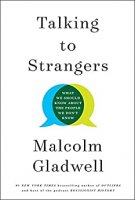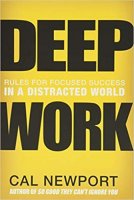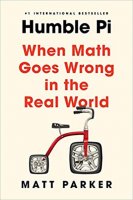
American Journeys Volume 1 by Lois Lenski (includes Indian Captive, Judy’s Journey, Flood Friday, Texas Tomboy, Boom Town Boy, Coal Camp Girl, and Mama Hattie’s Girl)
American Journeys Volume 2 by Lois Lenski (includes Strawberry Girl, Prairie School, Bayou Suzette, Blue Ridge Billy, Corn-Farm Boy, San Francisco Boy, and To Be a Logger)
Lois Lenski's children's books are a true treasure that all too few children—and parents and teachers—have discovered. I loved Indian Captive as a child, but didn't discover Strawberry Girl until I was an adult. Ocean-Born Mary came later still. Lenski's other books should not be so hard to find in our libraries! I discovered the fourteen above thanks to a sale on the Kindle versions of these collections, and what a treat they are! There are four other books in Lenski's American Regional series: Houseboat Girl (also available on Kindle), Cotton in My Sack, Deer Valley Girl, and Shoo-Fly Girl. Sadly, the last three are not available on Kindle.
These books are a much-needed antidote to what I call a chronological snobbery approach to teaching history. The term "chronological snobbery" isn't mine; I learned it from C. S. Lewis. All too often we look at the people and events of the past through ignorant, prideful eyes, as we are very good at seeing the areas in which we consider ourselves to be superior to our forebears, and very bad at even considering that there might be areas in which our forebears would justifiably consider us vastly inferior to themselves.
Lenski's books do an excellent job of avoiding that, for at least two reasons: they were largely written contemporaneously with the events they describe, and Lenski's research was meticulous and personal. She made a point of living in the situations she wrote about, getting to know the families, the work, and especially the children. For books where that was impossible, like Indian Captive and Ocean-Born Mary, she substituted thorough research and a heart sympathetic to all cultures.
Modern Americans may well be shocked by some of the situations in these books, but it is good for us to realize that our ways aren't the only ways that make for happy families and a healthy upbringing. Not to mention that other cultures may have done some things better than us. Nearly all the children in these books, for example, have many more responsibilities and at the same time much more freedom at younger ages than most modern parents can imagine.
The inspiration to write a review at this particular time? Amazon Kindle is currently (9/25/21) offering the second volume of these books for $3.99. Volume 1 is $31.99, so don't even think of buying it at that price. In my experience, with patience you will see it for $3.99 as well, and the individual books at $1.99. I highly recommend using (and supporting) a service called eReaderIQ, which will alert you when books or authors you are interested in go on sale.
I've featured the new vlog Chateau Love in a previous review, but after thirteen episodes, I've realized something important.
The heart of Chateau Love is clearly Vivienne. She's the hostess, writer, director, artist, and star. As I commented to Porter during one of the episodes, "Vivienne was born for this!" I love looking at her background—from her childhood in Memphis, to a lifetime's immersion in music, art, and beauty, to her work as a cruise ship social director and hostess extraordinaire—and seeing how it all blossoms into Chateau Love.
But Vivienne's vlog is only one of many vlogs about chateau life and renovation. (Who know chateau vlogging was a "thing"?) So, other than our friendship with the family, what makes Chateau Love special? How do they have over seven thousand subscribers to a channel that is only five months old and was started simply as a way to keep in touch with friends and family during pandemic lockdown?
Vivienne-and-Simon.
Most of Simon's work may be behind the scenes, but when he appears he is the perfect foil for Vivienne's personality. Without Simon, Vivienne's excitement and enthusiasm could come across as over-the-top. But as a splash of lemon cuts through the richness of a dish, Simon brings the story back to earth. When Vivienne and Isabella are singing the praises of chèvre in their cheese-of-the-week segment, Simon, with all the aplomb of the British gentleman he is, announces that "goat cheese tastes of goat's bottom."
It is Vivienne-and-Simon that makes Chateau Love what it is. The combination works.
UPDATE: Wouldn't you know it, as soon as I finish writing this post about the importance of Simon's contributions to Chateau Love, Episode 14 comes out without even a glimpse of him. It is still fun, as Vivienne has a "girls' adventure" with a friend from childhood, but nonetheless, Simon, we missed you!
 Talking to Strangers: What We Should Know about the People We Don't Know by Malcolm Gladwell (Little, Brown & Co, 2019)
Talking to Strangers: What We Should Know about the People We Don't Know by Malcolm Gladwell (Little, Brown & Co, 2019)
I can't resist Malcolm Gladwell's books, even though they never fail to frustrate as well as intrigue. He reminds me of Steve Landsburg on economics, and other authors who turn conventional thinking upside down and reveal surprising truths. As I said about Gladwell in my review of What the Dog Saw, his ideas may not always be right—in fact I'd lay odds that they're often wrong, or at least greatly oversimplified—but they're always interesting, and always give new insight into what we don't know about what we thought we understood.
Talking to Strangers is no exception. For me, it started slowly, and only an impending library deadline forced me to prioritize reading it past the introduction and first chapter. After that, I was hooked and the rest of the 400 pages went by in a flash. Gladwell's like that. I get frustrated by his prejudices, errors, and simplifications, then get hooked by his discoveries and can't put him down.
People, Gladwell posits, are shockingly bad at determining whether or not they are being lied to by those they do not know. And by people, he means nearly everyone. The professionals, like Securities and Exchange Commission auditors, FBI agents, and judges, are no better at that job than the most innocent little girl lured to the big city with promises of an acting career. In fact, when it comes to making decisions about setting bail conditions, judges who meet face-to-face with alleged criminals have been shown to make far poorer decisions than computer models working with nothing but bare facts.
Part of the problem is that most of us "default to truth." When we interact with another person we're pre-programmed to assume he's honest and truthful, and it takes a great deal of evidence of malfeasance to overcome that. A few people are not like that—we call them paranoid. For example, a man named Harry Markopolos was aware of the massive deception pulled off by Bernie Madoff long before anyone else was, but no one believed him. They trusted Madoff and they trusted the system that was supposed to keep bad things from happening. Markopolos saw the truth because he didn't trust anybody.
But here's the thing: that's no way to live.
In real life, ... lies are rare. And those lies that are told are told by a very small subset of people. That's why it doesn't matter so much that we are terrible at detecting lies in real life. Under the circumstances, in fact, defaulting to truth makes logical sense. If the person behind the counter at the coffee shop says your total with tax is $6.74, you can do the math yourself to double-check their calculations, holding up the line and wasting thirty seconds of your time. Or you can simply assume the salesperson is telling you the truth, because on balance most people do tell the truth. (pp. 99-100)
[H]uman beings never developed sophisticated and accurate skills to detect deception as it was happening because there is no advantage to spending your time scrutinizing the words and behaviors of those around you. The advantage to human beings lies in assuming that strangers are truthful. ... [I]t's easy to see all the damage done by people like ... Bernie Madoff. Because we trust implicitly, spies go undetected, criminals roam free, and lives are damaged. [But] the price of giving up on that strategy is much higher. If everyone on Wall Street behaved like Harry Markopolos, there would be no fraud on Wall Street—but the air would be so thick with suspicion and paranoia that there would also be no Wall Street. (pp. 100-101)
Referring to the infamous Penn State pedophilia scandal that broke in 2011, which turns out to be a whole lot more complex and confusing than we thought based on the media stories at the time:
If every coach is assumed to be a pedophile, then no parent would let their child leave the house, and no sane person would ever volunteer to be a coach. We default to truth—even when that decision carries terrible risks—because we have no choice. Society cannot function otherwise. And in those rare instances where trust ends in betrayal, those victimized by default to truth deserve our sympathy, not our censure. (p. 141)
Another mistake we make in judging strangers is pure hubris: we think we can tell what people are thinking or feeling by their facial expressions and body language. Nope. We're really terrible at that, too, especially if the stranger comes from a different cultural background. It reminds me of my mother's experience, years ago, as an elementary school teacher's aide. She was frustrated in her attempts to get the teacher to deal with the bullying of a small, Asian child—given the time period, he may have been a Southeast Asian refugee, but I don't know that for sure. "Surely it doesn't bother him," insisted the teacher. "You can see that he's smiling." My mother was certain that the "smile" indicated fear, not pleasure.
Transparency is a myth—an idea we've picked up from watching too much television and reading too many novels where the hero's "jaw dropped with astonishment" or "eyes went wide with surprise." (p. 162)
The transparency problem ends up in the same place as the default-to-truth problem. Our strategies for dealing with strangers are deeply flawed, but they are also socially necessary. We need the criminal-justice system and the hiring process and the selection of babysitters to be human. But the requirement of humanity means that we have to tolerate an enormous amount of error. That is the paradox of talking to strangers. We need to talk to them. But we're terrible at it. (p. 166)
It could be worse. One of the scariest sections of Talking to Strangers is about the Amanda Knox case. Amanda Knox, an American exchange student in Italy, was wrongfully convicted of the 2007 murder of her roommate.
I could give you a point-by-point analysis of what was wrong with the investigation of Kercher's murder. It could easily be the length of this book. I could also refer you to some of the most comprehensive scholarly analyses of the investigation's legal shortcomings.... But instead, let me give you the simplest and shortest of all possible Amanda Knox theories. Her case is about transparency. If you believe that the way a stranger looks and acts is a reliable clue to the way they feel, then you're going to make mistakes. Amanda Knox was one of those mistakes. (pp. 170-171)
Amanda Knox was different from the "social norms," as so many of us are.
"I was the quirky kid who hung out with the sulky manga-readers, the ostracized gay kids, and the theater geeks," she writes in her memoir. ... In high school she was the middle-class kid on financial aid, surrounded by well-heeled classmates. "I took Japanese and sang, loudly, in the halls while walking from one class to another. Since I didn't really fit in, I acted like myself, which pretty much made sure I never did." ...
"We were able to establish guilt," [the lead investigator] said, "by closely observing the suspect's psychological and behavioral reaction during the interrogation. We don't need to rely on other kinds of investigation." ... At every turn, Knox cannot escape censure for her weirdness. ... Why can't someone be angry in response to a murder, rather than sad? If you were Amanda Knox's friend, none of this would surprise you. You would have seen Knox walking down the street like an elephant. But with strangers, we're intolerant of emotional responses that fall outside expectations. (pp. 179-183)
I have many times been accused, even by my friends, of being angry, or sad, or some other emotional state that doesn't at all reflect my feelings, based solely on my facial expression. No amount of denial on my part seems to convince them, as they then assume that I am either lying or don't know my own "true feelings." There have also been times when I have been deeply saddened without showing any of the commonly expected signs. I think I'd be in trouble in court.
A trained interrogator ought to be adept at getting beneath the confusing signals of demeanor, at understanding that when Nervous Nelly overexplains and gets defensive, that's who she is—someone who overexplains and gets defensive. The police officer ought to be the person who sees the quirky, inappropriate girl in a culture far different from her own say [something inappropriate] and realize that she's just a quirky girl in a culture far different from her own. But that's not what we get. Instead, the people charged with making determinations of innocence and guilt seem to be as bad as or even worse than the rest of us when it comes to the hardest cases. ... [W]e have built a world that systematically discriminates against a class of people who, through no fault of their own, violate our ridiculous ideas about transparency. (pp. 185-186)
On the problem of sexual assault, particularly in a college setting:
[S]tudents were asked to list the measures they thought would be most effective in reducing sexual assault. At the top of that list they put harsher punishment for aggressors, self-defense training for victims, and teaching men to respect women more. How many thought it would be "very effective" if they drank less? Thirty-three percent. How many thought stronger restrictions on alcohol on campus would be very effective? Fifteen percent. These are contradictory positions. Students think it is a good idea to be trained in self-defense, and not such a good idea to clamp down on drinking. But what good is knowing the techniques of self-defense if you're blind drunk? Students think it's a really good idea if men respect women more. But the issue is not how men behave around women when they are sober. It is how they behave around women when they are drunk, and have been transformed by alcohol into a person who makes sense of the world around them very differently. (pp. 225-226)
On interrogation techniques:
One exercise involved crews of the bombers that carry nuclear weapons. Everything about their mission was classified. If they were to crash in hostile territory, you can imagine how curious their captors would be about the contents of their planes. The SERE program was supposed to prepare a flight crew for what might happen. [One exercise involved] one of the oldest tricks in the interrogation business: the interrogator threatens not the subject, but a colleague of the subject's. In [interrogation expert James Mitchell's] experience, men and women react very differently to this scenario. The men tend to fold. The women don't.
"If you are a female pilot and they said they were going to do something to the other airman, the attitude of a lot of them was, 'It sucks to be you,'" he said. "'You do your job, I'm going to do mine. I'm going to protect the secrets. I'm sorry this has happened to you, but you knew this when you signed up.'" Mitchell first saw this when he debriefed women who had been held as POWs during Desert Storm. They would drag those women out and threaten to beat them every time the men wouldn't talk. And [the women] were angry at the men for not holding out, and they said, "Maybe I would have gotten a beating, maybe I would have got sexually molested, but it would have happened one time. By showing them that the way to get the keys to the kingdom was to drag me out, it happened every time. So let me do my job. You do your job." (pp. 241-242)
The final two chapters shed some much-needed light on our current problems with law enforcement, making me more sympathetic to all sides. Some intriguing studies have shown that we are not looking at crime problems in fine enough detail. It seems that everyone in a city knows the "bad neighborhoods" for crime, but it turns out there are not so much bad neighborhoods as bad blocks. In any given high-crime area, the majority of the territory is not a problem. Most of the crime occurs in a few, much smaller locations, and focussing police action in these areas can cut crime rates dramatically. But the aggressive policing that makes such a difference in the hot spots has been adopted in areas for which it is is totally inappropriate. (Recognize that I am greatly condensing and simplifying here.) On top of that, police officers are no better than the rest of us at making judgements about strangers—and yet their jobs, and their very lives, require them to do so, quickly and under conditions of great stress.
This has been a book about a conundrum. We have no choice but to talk to strangers, especially in our modern, borderless world. We aren't living in villages anymore. Police officers have to stop people they do not know. Intelligence officers have to deal with deception and uncertainty. Young people want to go to parties explicitly to meet strangers: that's part of the thrill of romantic discovery. Yet at this most necessary of tasks we are inept. We think we can transform the stranger, without cost or sacrifice, into the familiar and the known, and we can't. What should we do? (pp. 341-342)
We could start by no longer penalizing one another for defaulting to truth. If you are a parent whose child was abused by a stranger—even if you were in the room—that does not make you a bad parent. And if you are a university president and you do not jump to the worst-case scenario when given a murky report about one of your employees, that doesn't make you a criminal. To assume the best about another is the trait that has created modern society. Those occasions when our trusting nature gets violated are tragic. But the alternative—to abandon trust as a defense against predation and deception—is worse. (p. 342)
What is required of us is restraint and humility. (p. 343)
I love cooking shows. Most of them are on cable television, which we have never had and I hope will never feel the need to have, but they're a favorite of mine when available on long overseas flights. And then there's YouTube.
Ann Reardon's How to Cook That channel first caught my eye because of her "debunking" videos, in which she tries out and exposes too-good-to-be-true internet "hacks," mostly related to her specialty, food. Here's one (16 minutes).
And here's one for our daughter who has always loved miniatures (6.5 minutes). So has Ann, and in her "Teeny-Weeny Challenges" actually bakes in her miniature kitchen.
These are just some of the sidelights of her channel, however. Mostly she focusses on amazing desserts, and has recently published a cookbook called Crazy Sweet Creations. Here's a basic video on working with chocolate (13.5 minutes).
Are you hungry yet?
Most of Ann's creations are too complex to interest me in attempting them, but they are fun to watch, and I can pick up some interesting tips and tricks along the way.
Permalink | Read 1661 times | Comments (0)
Category Reviews: [first] [previous] [next] [newest] Food: [first] [previous] [next] [newest] Inspiration: [first] [previous] [next] [newest] YouTube Channel Discoveries: [first] [previous] [next] [newest]

 The Wild Robot and The Wild Robot Escapes by Peter Brown (Little, Brown 2016, 2018)
The Wild Robot and The Wild Robot Escapes by Peter Brown (Little, Brown 2016, 2018)
When everyone in the house (adult, 17, 14, 12, 10, 8, and 6) approves of a book, I generally find it worth looking into, despite my well-ingrained—and more often than not justified—prejudice against recently-written children's books. Peter Brown's Wild Robot books were definitely worth the reading.
Brown's story of a robot cast away on an uninhabited (by humans) island and how its programming directs its adjustment there, and in later adventures, is very well done, reminding me of Isaac Aimov's treatment of the practical and ethical issues of a society that includes multitudes of robotic machines.
There's love and conflict and tragedy and emotional struggles, all handled sensitively. I can't say I like these books better than S. D. Smith's Green Ember series, which my readers know I love greatly, but they are less dark—and less violent, despite some scary adventures. I detected no warning bells for my very sensitive grandchildren on the other side of the family. They may especially enjoy that the main character is female (if one can say that about a robot) who is strong and smart, gentle and motherly.
Sure, I could make some complaints, but they're minor and overshadowed by the good.
 A Child's History of England by Charles Dickens (public domain, 1851-1853)
A Child's History of England by Charles Dickens (public domain, 1851-1853)
Dickens' book is, unsurprisingly, in the public domain. I read the free Kindle version and it was fine, though it might be worth springing for another $2 and getting the original illustrations as well.
A Child's History of England is a maddening book, yet a valuable one. According to its Wikipedia article, it "was included in the curricula of British schoolchildren well into the 20th century." It never could be now—which may be an indication that it should be. It is one man's very biased view of English history, hence valuable to balance other biases.
What's good about it? Well, I appreciated the organized layout of English history from ancient times up to the reign of William and Mary, with a very quick summary thence to Queen Victoria. Bit by bit, through several sources, I am gaining knowledge of the history of the lands that were home to many of my ancestors and played a significant part in the development of Western Civilization. The book, being designed for intelligent children, is both readable enough and interesting enough to read much more like a story than a textbook.
What didn't I like? To begin with, it is obviously and admittedly a propaganda piece. Dickens himself said of his book,
I am writing a little history of England for my boy ... For I don't know what I should do, if he were to get hold of any conservative or High Church notions; and the best way of guarding against any such horrible result is, I take it, to wring the parrots' neck in his very cradle.
Dickens does not appear to have liked England very much. He praises the Saxons, and holds Alfred the Great in very high esteem. Henry V wasn't too bad, and Oliver Cromwell gets too much credit for not being as horrible as the kings that preceded and followed him. Other than that, Dickens doesn't seem to have much respect for any of the British monarchs and their hangers-on. He also passionately hates the Catholic Church, and much of the undivided Church itself before the Reformation. The Puritans are heaped with scorn as well. He clearly claims to be a Christian, just as he claims to be an Englishman, but doesn't seem to care much for either Christianity or England. Sometimes the book feels less like a history and more like a series of ad hominem attacks. He even manages to draw a caricature of Joan of Arc as a mentally deficient peasant girl abused for others' gain.
Part and parcel of his prejudice, I believe, his his annoying habit of inconsistently referring to people sometimes by name, sometimes by title, often by nickname, and even by insult. I found this to make keeping the characters straight difficult, and I tired of flipping back several pages to try to figure out which particular duke was currently meant. It certainly doesn't help me to remember that he's talking about King James I when most of the time Dickens refers to him as "His Sowship."
For all that, I do recommend reading A Child's History of England, though only in the context of competing viewpoints. It does a good job of helping to put together the pieces of the complex puzzle that is the story of England.
Thinking further about Cal Newport's Deep Work, here are two more valuable quotations I should have included.
First, on the importance of a "shutdown ritual" for ending the "work day" (however that is defined for us) and not letting it take over the rest of our lives. I see it as less about employment and more about being able to switch cleanly from one activity to another (including rest).
The concept of a shutdown ritual might at first seem extreme, but there's a good reason for it: the Zeigarnik effect. This effect ... describes the ability of incomplete tasks to dominate our attention. It tells us that if you simply stop whatever you are doing at five p.m. and declare, "I'm done with work until tomorrow," you'll likely struggle to keep your mind clear of professional issues, as the many obligations left unresolved in your mind will, as in Bluma Zeigarnik's experiments, keep battling for your attention throughout the evening.
At first, this challenge might seem unresolvable. As any busy knowledge worker can attest, there are always tasks left incomplete. The idea that you can ever reach a point where all your obligations are handled is a fantasy. Fortunately, we don't need to complete a task to get it off our minds. ... In [a study by Roy Baumeister and E. J. Masicampo], the two researchers began by replicating the Zeigarnik effect in their subjects (in this case, the researchers assigned a task and then cruelly engineered interruptions), but then found that they could significantly reduce the effect's impact by asking the subjects, soon after the interruption, to make a plan for how they would later complete the incomplete task. To quote the paper: "Committing to a specific plan for a goal may therefore not only facilitate attainment of the goal but may also free cognitive resources for other pursuits."
The shutdown ritual ... leverages this tactic to battle the Zeigarnik effect. While it doesn't force you to explicitly identify a plan for every single task in your task list (a burdensome requirement), it does force you to capture every task in a common list, and then review these tasks before making a plan for the next day. This ritual ensures that no task will be forgotten: Each will be reviewed daily and tackled when the time is appropriate. Your mind, in other words, is released from its duty to keep track of these obligations at every moment—your shutdown ritual has taken over that responsibility. (pp. 152-154, emphasis mine).
I find I need to re-learn the following every day.
The science writer Winifred Gallagher stumbled onto a connection between attention and happiness after an unexpected and terrifying event, a cancer diagnosis. ... [A]s she walked away from the hospital after the diagnosis she formed a sudden and strong intuition: "This disease wanted to monopolize my attention, but as much as possible, I would focus on my life instead." The cancer treatment that followed was exhausting and terrible, but Gallagher couldn't help noticing, in that corner of her brain honed by a career in nonfiction writing, that her commitment to focus on what was good in her life—"movies, walks, and a 6:30 martini"—worked surprisingly well. Her life during this period should have been mired in fear and pity, but it was instead, she noted, often quite pleasant. Her curiosity piqued, Gallagher set out to better understand the role that attention—that is, what we choose to focus on and what we choose to ignore—plays in defining the quality of our life. After five years of science reporting, she came away convinced that she was witness to a "grand unified theory" of the mind:
Like fingers pointing to the moon, other diverse disciplines from anthropology to education, behavioral economics to family counseling, similarly suggest that the skillful management of attention is the sine qua non of the good life and the key to improving virtually every aspect of your experience.
This concept upends the way most people think about their subjective experience of life. We tend to place a lot of emphasis on our circumstances, assuming that what happens to us (or fails to happen) determines how we feel. From this perspective, the small-scale details of how you spend your day aren't that important, because what matters are the large-scale outcomes, such as whether or not you get a promotion or move to that nicer apartment. ... [D]ecades of research contradict this understanding. Our brains instead construct our worldview based on what we pay attention to. If you focus on a cancer diagnosis, you and your life become unhappy and dark, but if you focus instead on an evening martini, you and your life become more pleasant—even though the circumstances in both scenarios are the same. As Gallagher summarizes: "Who you are, what you think, feel, and do, what you love—is the sum of what you focus on." (p. 76-77, emphasis mine).
 Deep Work: Rules for Focused Success in a Distracted World by Cal Newport (Grand Central Publishing, 2016)
Deep Work: Rules for Focused Success in a Distracted World by Cal Newport (Grand Central Publishing, 2016)
This is now the third Cal Newport book I've read. If you'd asked me, I'd have said it's the second, but while looking up the link for my review of Digital Minimalism, I noticed that 'way back in 2011 I had also reviewed How to Be a High School Superstar, which I had found to be incredibly important.
It's been a long time since I read How to be a High School Superstar, but if my memory is at all good, I think Deep Work may be the adult equivalent, with Digital Minimalism a natural consequence of those ideas.
Of the three books, Deep Work hits me more where I live at the moment. Not completely; as with Digital Minimalism, it is primarily about the business world, the world of outside-of-the-home careers. I'm certain Newport's ideas are just as important in our private lives; it's just a bit tricky to transfer them to the world of a busy young mother, say. Yet who better than a mother understands the importance (and difficulty) of finding time for concentrated thought?
Sadly, I'm going to disappoint some of my readers with the quotation section, but that just tells you how important I think the book is. Before I was two thirds of the way through Deep Work, I had more than 50 sticky notes marking places I wanted to quote. And more often than not it was several paragraphs rather than a nice, pithy couple of sentences. So basically, I gave up. I didn't mark nearly as many places in the last third of the book, because I knew I couldn't type them all out, and even if I could, my readers' eyes would glaze over early on.
As it turns out, you are going to get more quotations than I had originally thought (though they still don't begin to mine the value of Deep Work), because...
BREAKING NEWS!
Amazon is currently selling the Kindle version of Deep Work for $2.99!
I had already decided I wanted a copy of the book, but the Kindle version, and even the used paperbacks, were out of my price range. It's a popular book. I was struggling to finish reading the book in time—let alone write this review—because it is so popular at the library that I couldn't get it renewed. But while I was busy racking up fines, suddenly eReaderIQ (which I highly recommend) popped up with the news of Amazon's price drop "for a limited time."
I don't know how long that limited time will be, but $2.99 is good enough for me for almost any book that sounds interesting, and for this book it was a very timely godsend.
With the Kindle version I can copy and paste instead of laboriously typing out quotations. (I painstakingly converted all my sticky notes to Kindle highlights.) But the material simply does not lend itself to short quotes and easy summarizing. You really should read the whole book and allow it time to digest.
Here is Newport's definition of deep work:
Deep Work: Professional activities performed in a state of distraction-free concentration that push your cognitive capabilities to their limit. These efforts create new value, improve your skill, and are hard to replicate. (p. 3).
I would argue that these activities hardly need to be "professional," but this is part of the career-world orientation of the book. I'm certain it's adaptable.
And here is his definition of shallow work:
Shallow Work: Noncognitively demanding, logistical-style tasks, often performed while distracted. These efforts tend to not create much new value in the world and are easy to replicate. (p. 6)
The ability (and time) to accomplish deep work has become critical in today's economy—at least if one doesn't want to make minimum wage (or less) in the hospitality industry. (Newport doesn't mention the hospitality industry; that's my observation having seen, both as one who lives in "Mickey's Backyard" and as a traveller.)
To remain valuable in our economy ... you must master the art of quickly learning complicated things. This task requires deep work. If you don’t cultivate this ability, you’re likely to fall behind as technology advances. (p. 13)
The growing necessity of deep work is new. In an industrial economy, there was a small skilled labor and professional class for which deep work was crucial, but most workers could do just fine without ever cultivating an ability to concentrate without distraction. ... But as we shift to an information economy, more and more of our population are knowledge workers, and deep work is becoming a key currency—even if most haven’t yet recognized this reality. (pp. 13-14).
However, deep work is disappearing at an alarming rate.
The ability to perform deep work is becoming increasingly rare at exactly the same time it is becoming increasingly valuable in our economy. As a consequence, the few who cultivate this skill, and then make it the core of their working life, will thrive. (p. 14).
This—and strategies for achieving deep work despite a society of ever-present distractions that actively fights against it—is what the book is all about.
As I mentioned above, mothers could tell Newport a thing or two about the difficulty of putting two coherent thoughts together when one's "office" is a household full of young children. What has changed in the business and academic worlds is that the demands of e-mail, virtual meetings, and other forms of rapid messaging and constant connectivity have brought the world of incessant interruption into the heretofore relatively quiet world of outside-the-home work. Add in Twitter, Facebook, Instagram, and even the business-oriented social media sites like LinkedIn, and our opportunities for deep thinking have become virtually nil.
I was interested to note that the "working retreats" devised by our daughters (young, homeschooling mothers of large families, with cooperative husbands) to carve out time and space for deep work fit in perfectly with Newport's ideas. Not that they could go to the extremes of some of his examples:
[J. K.] Rowling’s decision to check into a luxurious hotel suite near Edinburgh Castle is an example of a curious but effective strategy in the world of deep work: the grand gesture. The concept is simple: By leveraging a radical change to your normal environment, coupled perhaps with a significant investment of effort or money, all dedicated toward supporting a deep work task, you increase the perceived importance of the task. This boost in importance reduces your mind’s instinct to procrastinate and delivers an injection of motivation and energy.
Writing a chapter of a Harry Potter novel, for example, is hard work and will require a lot of mental energy—regardless of where you do it. But when paying more than $1,000 a day to write the chapter in a suite of an old hotel down the street from a Hogwarts-style castle, mustering the energy to begin and sustain this work is easier than if you were instead in a distracting home office. (pp. 122-123)
Then there's this one:
An even more extreme example of a onetime grand gesture yielding results is a story involving Peter Shankman, an entrepreneur and social media pioneer. As a popular speaker, Shankman spends much of his time flying. He eventually realized that thirty thousand feet was an ideal environment for him to focus. As he explained in a blog post, “Locked in a seat with nothing in front of me, nothing to distract me, nothing to set off my ‘Ooh! Shiny!’ DNA, I have nothing to do but be at one with my thoughts.” It was sometime after this realization that Shankman signed a book contract that gave him only two weeks to finish the entire manuscript. Meeting this deadline would require incredible concentration. To achieve this state, Shankman did something unconventional. He booked a round-trip business-class ticket to Tokyo. He wrote during the whole flight to Japan, drank an espresso in the business class lounge once he arrived in Japan, then turned around and flew back, once again writing the whole way—arriving back in the States only thirty hours after he first left with a completed manuscript now in hand. “The trip cost $4,000 and was worth every penny,” he explained. (p. 125).
There is so, so much in this book, but I will only include two more quotations, both from footnotes:
The complex reality of the technologies that real companies leverage to get ahead emphasizes the absurdity of the now common idea that exposure to simplistic, consumer-facing products—especially in schools—somehow prepares people to succeed in a high-tech economy. Giving students iPads or allowing them to film homework assignments on YouTube prepares them for a high-tech economy about as much as playing with Hot Wheels would prepare them to thrive as auto mechanics. (Kindle p. 287, footnote to p. 30, emphasis mine)
The following footnote I include simply because it mentions The Art of Manliness, which keeps popping up in all sorts of surprising places, and holds a special place in my heart because it is a long-time client of Lime Daley, which feeds, clothes, houses, and educates a good number of our grandchildren.
The specific article by White from which I draw the steps presented here can be found online: Ron White, “How to Memorize a Deck of Cards with Superhuman Speed,” guest post, The Art of Manliness, June 1, 2012, http://www.artofmanliness.com/2012/06/01/how-to-memorize-a-deck-of-cards/. (Kindle p. 287, footnote to p. 177)
One thing I especially appreciate about this book is that Newport lays out the problem, and offers suggestions for combating it, but is not dogmatic about the solutions: he knows that once people (and companies) are aware of what is going on, they will be able to craft battle plans that work best in their individual situations.
I can tell the author is young, for he focusses on the contributions of the internet and social media to our splintered attention, and mostly gives earlier forms of distraction a pass. Neil Postman, Marie Winn, and others pointed out back in the 1970's and 80's the addictive nature of television, its deliberate shortening of our attention spans, and the changes it makes to the human brain. And although books and reading are generally indiscriminately lauded by those trying to battle the functional illiteracy of our times (does it matter that someone can read if he doesn't?), the design of much of today's reading material contributes its fair share to the diminution of our ability to concentrate. No doubt the internet, social media, and smart phones are the greatest problem, but it doesn't start or stop there.
As usual, I don't agree with everything Cal Newport says, but there's so much important here it's really worth your $2.99. If you miss the sale, it's certain to be in your public library, though probably with a waiting list.












Swallows and Amazons ♦ Swallowdale ♦ Peter Duck ♦ Winter Holiday ♦ Coot Club ♦ Pigeon Post ♦ We Didn't Mean to Go to Sea ♦ Secret Water ♦ The Big Six ♦ Missee Lee ♦ The Picts and the Martyrs ♦ Great Northern? by Arthur Ransome (Jonathan Cape, 1930-1947)
Arthur Ransome's Swallows and Amazons is an all-time favorite series from childhood. We are blessed to have a full set of hardcover versions on our shelves, thanks primarily to my brother who braved Mad Cow disease to bring them home from England in the 1980's, when they were unavailable here. These enchanting books have been family reading for our children, our nephews, and our grandchildren, and I never tire of them myself. Therefore I was shocked to realize that the last time I read them—other than in parts, as I would occasionally look up a favorite passage—was more than ten years ago. It was definitely high time to work my way through the series again.
I fully agree with C. S. Lewis, who said, "A children's story which is enjoyed only by children is a bad children's story. The good ones last." Although the protagonists in these stories are children, and the books are set nearly 100 years ago, they are books for every age, and in every age. Boats and sailing feature prominently and so delightfully that I was convinced by these books that I would love sailing. Alas, I found the reality to be disappointingly unlike the fiction—but at least some of our grandchildren feel differently.
Swallows and Amazons Here it all begins. It was known as a "free-range kids" book before Lenore Skenazy made Free-Range Kids a thing. Six children (four Swallows and two Amazons), ranging in age from seven to twelve, camp entirely by themselves on an island, including making fires, cooking, and sailing all over the lake. What sets these books apart is not only the very realistic competence and responsibility of the children, but a strong sense of family, of love and respect between parents and children and among the children themselves. The sibling squabbles taken for granted today are simply nonexistent, yet their relationships are natural and unforced. What I find all the more remarkable is that this sense of family is maintained in a time and place where it was considered normal to send young children off to boarding school. And though fathers rarely appear in the stories—in this case, one has died and the other, a Navy man, is overseas—they are clearly loved, respected, and heads of their families. At the same time, the female characters are unusually strong and competent.
Swallowdale Expecting a return to their glorious island summer, the children now face several seemingly unsurmountable obstacles. Their adventures as they overcome these challenges make this one of my favorite books in the series.
"They look happy enough," said Captain Flint, watching the Amazon slapping across the ripples on her way to Horseshoe Cove.
"They aren't," said Captain John.
"Ï know they aren't, but the next best thing to being happy is to look it."
Peter Duck A story-with-the-story imaginative tale of a trip by the Swallows and Amazons characters from England to the Caribbean, complete with pirates and a treasure hunt. Parental caution: One of the pirates is black, treated on equal footing with the rest of the pirates, stereotyped along with the others for his profession but not for his race. The word "nigger" occurs six times in the book: once in the narrative of the pirates' "ship's boy"—a "street kid" with an appropriate vocabulary—in which it is descriptive, not pejorative. The other five times it is used as a slang identifier for a black pearl.
Winter Holiday If I had to pick a favorite among the Swallows and Amazons books, this would be it. Two new major characters are introduced, and the integration into the group of Dick Callum, who in modern times would be called a nerd, makes especially clear one of the strengths of this series. Each character is unique, each brings something valuable to the team, and each is appreciated for his gifts and lovingly tolerated for his quirks. On top of that, this is a story of a great adventure on the ice, coming out of what looked to be a disaster—an outbreak of mumps—with children and grownups in just the right proportions.
Coot Club When I first picked up this book as a child, I was disappointed. This story is set in a different part of England, with new characters and only Dick and Dorothea, the two introduced in Winter Holiday, to tie it in with the rest of the series. But the new characters are just as competent, independent, and engaging as the previous ones. If this story has too much of the kind of tension I dislike in a book—I hate bullying!—at least all's well that ends well.
Pigeon Post This time the original six children, plus Dick and Dorothea, are back in the original setting with new challenges, including some serious danger and real heroism. The title comes from the homing pigeons they use to communicate with worried adults while they are camped further afield, prospecting for gold.
We Didn't Mean to Go to Sea One of my very favorites of the series. I've always read it as an adventure story, but this time what stood out was a story of how courage, intelligence, good preparation, spiritual strength, loyalty, obedience, compassion, family, and love—all the character traits extolled in the best medieval (and medieval-inspired) romances—can unexpectedly be called upon in the ordinary lives of ordinary human beings.
Secret Water The youngest Swallow, four-year-old Bridget, is finally old enough for adventures with the rest of the gang. Being temporarily marooned on an unknown island, for the purposes of discovery and map-making, was not meant to be as dangerous as it turned out to be.
The Big Six returns to the setting and characters of Coot Club. Even knowing that the bullies lose in the end cannot diminish the discomfort I feel with their antics. Every time I read it. Nonetheless, it's an enjoyable story. Parental warning: there a couple of instances of the word "nigger," used by a young boy seeing a photographic negative for the first time. Younger people may find it difficult to believe that this word was once used as an innocent descriptor—and included those of Asian Indian as well as of African descent—with no malice intended. But it was. Still, today it requires some explanation—or skipping when read aloud.
Missee Lee is the second story-within-the-story. This time the six original Swallows and Amazons, along with the intrepid Captain Flint, are taken captive by Chinese pirates. Some readers will take exception to what they see as stereotyping of the Chinese people, but Ransome was familiar with Chinese life and culture, and based the character of Missee Lee, respectfully, on the wife of Sun Yat-sen and others he met during his visits to China in the 1920's.
The Picts and the Martyrs Set once again in home waters, this story features the Amazons, Dick and Dorothea, and a love-to-hate-her character from Swallowdale, the Great Aunt, who once again puts all sorts of obstacles in front of the planned idylic holidays on the lake. There's a surprise twist at the end that reveals a lot about the characters and makes this another one of my favorites.
Great Northern? There is some debate as to whether this is a "real" story or a third story-within-the-story. Those who choose the latter seem to base their reasoning largely on the presence of guns and threatened violence, but Ransome himself insisted it was not intended to be a made-up story like Peter Duck and Missee Lee. In Ransome's day, most people had a more balanced view of guns than many do now, and would not have thought them out of place in a children's story. This one is set in the Outer Hebrides and includes an introduction to Scottish Gaelic culture. Dick and Dorothea, the Amazons, and all the Swallows except Bridget are included, along with the bird protection theme that first appears in Coot Club. My enjoyment was only slightly marred by the presence of another evil bully, this time an adult, at the center of the plot.
Altogether this is a wonderful series of books, with a very positive view of children, parents, families, and communities. For all that, it is totally free of those awful elements that often creep into stories intended to make a point (positive or negative) about children, parents, families, or communities. It's clear that Ransome doesn't intend anything except to write good stories about people and places inspired by his own experiences.
I've posted quite a bit already about and by David Freiheit and his YouTube channel Viva Frei. But he certainly deserves a part in this series, so here it is, along with some new (to here) videos.
David Freiheit is a Canadian lawyer in Montreal, who worked several years with a big law firm, then started his own commercial litigation practice. During this time his YouTube presence grew, and in 2018 he gave up his practice and took his YouTube channel fulltime. He calls his vlog (video blog) a VLAWG, because his video commentary on current issues from a legal standpoint is what really took off for him. I love seeing American politics from a Canadian point of view, and learning more about life in Canada, especially in Quebec. Occasionally one gets a chance to practice French, but the vlog is in English and Freiheit is good at providing translations.
His style is a little on the crazy side, but he makes legal issues and legal documents interesting, which qualifies him as a miracle worker as far as I'm concerned.
Although Freiheit pulls no punches he is also generally happy, positive, and willing to see more than one side of a situation. He retains his lawyer's caution and willingness to go beyond the surface of a story. Sadly, the pandemic—or more precisely, governmental reaction to the pandemic—is taking its toll on his optimism, but as with much these days, we live in hope that "this too shall pass."
Note: This is a caveat appropriate for all YouTube videos, but especially ones that touch on politics: you may want to avoid the comments. Freiheit is a reasonable and generally even-handed commentator, but not all his followers are so polite.
Another note: You may notice that he uses his own euphemisms for certain words. I don't mean for profanities—he's quite good at keeping his vlog clean without that—but for otherwise normal words that tend to upset the YouTube algorithm and lead to the demonetization or even taking down of videos. Words like "coronavirus," "COVID," and "fraud," for example, have at one time or another been YouTube no-no's. Sometimes he'll also just leave a legal paper or a tweet or letter up on the screen for the audience to read, since apparently YouTube is more likely to object to the spoken word than an image of words. The things you have to do for freedom of speech these days!
There are several different kinds of videos on Viva Frei, and he films in a few different locations. Many of his vlogs are recorded in his car, a concession to the pandemic reality that there's no quiet place in the house. Some are nonetheless done from his basement, and right now he is being quarantined in a family cabin because someone in one of his children's classrooms tested positive for COVID. He also vlogs while ice fishing, which I find both interesting and distracting—I tend to worry because even a New Hampshire native would consider the conditions very cold, and he often has bare hands!
My introduction to Freiheit's work was his legal analysis of current issues; even after all this time, I'm still tickled that he can make legal language and legal proceedings interesting. The following video about a lawsuit against Facebook is a good example of that kind, including a short explanation of class-action lawsuit, and it's less than 10 minutes from start to finish.
Here's another, also from his car, showing not so much legal matters as applying a logical legal mind to reveal the facts behind the news story—or in this case, the tweet. (Just over 10 minutes.)
Then there's his "Viva on the Street" series, in which he vlogs while walking along the streets of Montreal with one or both of his dogs, because walking a dog is one of the very few ways in which it is legal for a Québecois to be out after the "temporary, one-month" curfew was imposed back in mid-January. (Spoiler alert: the curfew is still in place.) Since one of his dogs has paralyzed hind legs, and the other is a puppy going blind, he actually spends more time carrying them than letting them walk, but so far the officials haven't fined him—as they've done to those who have been walking their cats, and the one intrepid woman who had her husband on a leash. Dogs only, please.
But I digress. Here's one of the "Viva on the Street" episodes about the curfew (11 minutes).
He also does live streams with American lawyer Robert Barnes, which are fascinating, but who has time to watch for two hours? I wait for the excerpts that he publishes afterwards. I'd post a sample here, but I'd rather not include more than three videos in an introduction. If you get interested in the channel, you'll find the live streams.
And there's more. All in all, it's a fascinating channel, with more videos than I can keep up with—or even want to. If you'd occasionally like to get out of your American news bubble, or your mainstream media bubble, or to know more of the stories behind the headlines, this is a good place to be.
For less in the way of politics and more on everyday life in Quebec, Freiheit has another channel, Viva Family.
Permalink | Read 2869 times | Comments (0)
Category Reviews: [first] [previous] [next] [newest] Politics: [first] [previous] [next] [newest] Inspiration: [first] [previous] [next] [newest] YouTube Channel Discoveries: [first] [previous] [next] [newest]
 Greenglass House by Kate Milford (Clarion Books, 2014)
Greenglass House by Kate Milford (Clarion Books, 2014)
This book appeared in the curriculum for one or more of our grandchildren. I'm not sure what level—probably upper elementary—but when you homeschool, school grade levels are meaningless, and everyone in the family enjoyed it, from kindergarten through high school, as well as the adults.
I can see why.
Even after hearing their enthusiasm, I made the mistake of being swayed by what I read on Amazon. Based on that, I thought this was going to be a "school story," and I find adolescent school stories almost as intolerable as romances. But on their repeated recommendation, I borrowed the book from the library and did, indeed, enjoy it very much. It has certain attractions for a genealogist, and more attractions for a mystery-lover, and I am both. The school part appears only at the very beginning and is cheerfully ignored thereafter.
My only disappointment is a bit of a deus ex machina at the end. I'm not going to spoil the story here, but let's just say I could have done without the supernatural elements. Not that I'm totally against them—I do enjoy E. Nesbit's books, for example—but in this case it felt rather like cheating.
The story, however, is a good one, and I especially enjoyed the author's descriptions, and use of words. Plus, I love stained glass windows. Here's a sample:
He padded through to the far end of the living room and past the biggest of the house’s stained-glass windows, a huge floor-to-ceiling panel in copper, wine, chestnut, verdigris, and navy. He continued down a very short hall to a blue door at the end of it. A big, round brass bell tied to his doorknob with a wide plaid ribbon gave a welcoming jingle as Milo turned the knob to enter and another as he closed the door behind him. He reached for a switch and the lights came on: a brass anchor lantern that hung beside the door that had once belonged to the ship his grandfather had served on, and a string of onion-shaped red silk lanterns embroidered with Chinese characters and hung with gold tassels that crossed the room diagonally from opposite corners of the ceiling.
They had me at "copper, wine, chestnut, verdigris, and navy."
I'm told there are interesting sequels, but unlike the first book there is swearing in them that makes reading aloud more of a challenge. I can't imagine why an author would think this is appropriate in a book designed (according to Amazon) for 10-12 year olds. I miss the old days when publishers reined in their authors' bad language, forcing them to write, "She swore like a sailor," letting the reader's imagination fill in the blanks, instead of making the language explicit.
Next up in this series of interesting YouTube channel subscriptions: Everything Music, by Rick Beato. I was going to say that I can't remember what introduced me to to Rick Beato's channel, but a look back at one of my own posts gave me the answer: Google apparently decided I would be interested in it, popping up a suggested video on my phone. For once they were right.
My gateway to Beato's channel was the musical abilities of his young son, Dylan. There are several Dylan videos, but this one is a good 13-minute compilation:
It turns out that the Dylan videos are but a small part of Everything Music. Beato covers so much; I'll let him give the intro (13 minutes).
Music theory, film music, modal scales, tales from his own interesting musical history, and a whole lot of modern music about which I know little and like less.
Remember what I said about Excellence and Enthusiasm?
I'm a child of the 60's, chronologically, but unlike most of my generation, I've never liked rock music, nor any of its relatives and derivatives. Granted, growing up when I did there was no getting away from it, and there were a few specific songs I did enjoy. At one point, I was even a minor fan of Jefferson Airplane, and attended one of their wild, live concerts. That point in my life, while embarrassing, reminds me of this line from C. S. Lewis' Screwtape Letters: "I have known a human defended from strong temptations to social ambition by a still stronger taste for tripe and onions." Who knows what trouble I might have gotten into in my college years had I not had a stronger taste for what is loosely called classical music?
What, specifically, don't I like about the rock genre(s)?
- The music is almost invariably played at ear-splitting volume, literally ear-damaging.
- Most of the music comes with lyrics, and with a few exceptions, I find that they range from boring to abominable.
- The heavy emphasis on pounding rhythms drives me crazy; I never have liked playing with a metronome.
- The timbre of the electric guitar, nearly ubiquitous in rock music, is one of a very few that I generally find unpleasant (saxophone is another).
Enter Rick Beato. If his son's abilities are astounding, Rick's aren't all that far behind, and his experience, knowledge, and enthusiasm keep me interested in his analysis even though most of his examples are from music I can't stand. It helps a lot that he uses short excerpts, in which neither lyrics nor pounding beats have a chance to do much harm. Plus, I control the volume.
I especially enjoy Rick's videos on modal music, as that has always interested my ear. It does seem really odd to hear him talk about modes without any reference to church music, in which modal music was once really big. But I had no idea how important modes are in rock music and film scoring, and learning through Rick's videos has been a delight. Hiding underneath all that raucous sound and those objectionable lyrics is a lot of complex and very interesting music. It's not going to make me a rock music fan, but it gives me more appreciation for the skill of the musicians behind it—if not for their sometimes questionable moral compasses. (I know, classical composers were not necessarily saints, either. There's a reason I generally prefer instrumental music.) It has also heightened my awareness of the music that undergirds our movies and television shows, and why it is often so powerful.
Here's an interesting Gustav Holtz/John Williams comparison from one of his movie music videos (16 minutes):
That's enough for an introduction; I'm sure I'll be posting more Everything Music videos in the future.
Permalink | Read 2186 times | Comments (0)
Category Reviews: [first] [previous] [next] [newest] Education: [first] [previous] [next] [newest] Music: [first] [previous] [next] [newest] Inspiration: [first] [previous] [next] [newest] YouTube Channel Discoveries: [first] [next] [newest]
I'm starting a new series of posts featuring YouTube channels I've found interesting and which I think others might enjoy, too. Some were recommended by friends; some I just happened upon in the almost-random way one does online.
Today? Chateau Love.
The writers (producers? hosts?) are friends of ours, so I would have subscribed in any case. But this is also an example of what I wrote about yesterday, of how excellence and enthusiasm draw me into an appreciation of subjects that I might otherwise give a miss.
Our friends Vivienne and Simon have recently started their own vlog (video blog), featuring life at and around their château in France. Without meaning in any way to diminish Simon's many contributions, I'll focus on Vivienne in this introduction because she's clearly the hostess and narrator of the vlog, and because we've known her longer and better.
Vivienne is an artist. I mean a "real" artist, whose paintings have been exhibited in Paris. Now that sounds really impressive, and it is, but you do have to bear in mind that for a number of years Paris was her home. She's an American, married to a Brit—but they've called France home for a long time. When I say she is an artist, however, I mean much more than her paintings. Vivienne puts beauty and elegance into everything she touches, whether it's a small, temporary apartment, a huge French château, a simple meal, a feast for the neighborhood, or a birthday Easter basket for an enchanted guest. Our tastes differ in many respects: not only am I incapable of the amazing feats of home decor Vivienne achieves, but also I wouldn't want that for our house. It's not my style. That does not stop me from standing in awe of the beauty that looks as if it could be in a museum. What she does with food, now—that's welcome in our house any day.
Watching the Chateau Love videos, you might assume that Vivienne and Simon must be wealthy. I assure you they are ordinary human beings with ordinary human struggles and no trust funds! Vivienne is incredibly talented at finding bargains as well as making something both useful and beautiful out of items the rest of us would casually toss in the trash. (See the "Louis XVI coathooks" in Episode 2.)
Vlogging is a new project for them, a bit of pandemic-and-lockdown-stress relief. I'm also excited to watch the growth of Chateau Love as they gain experience and new equipment. May this be a very long-running show!
Below are the first three episodes. So far they have each been just under 30 minutes long, and published on a once-a-week schedule. As a bonus, you can hear music by Vivienne's talented singer sister, Ashley Locheed. And you can occasionally catch glimpses of Janet & Stephan's flower girl—much grown up.
Episode 1: Romance, DIY, A Dodgy Haircut & Who We Are!
Episode 2: Dramatic Bedroom-Bathroom Reveal, DIY Chateau Bed, Cheesy Meltdown, & Winter Wonderland!!
For some reason the second video is not playing here on my blog, though the first and third are. You can see it on YouTube itself by clicking on the title link. I'll leave the embedded video up while I try to find out what's going on.
Episode 3: Wine Tasting, Vineyards, Plants, Cheese & Pony Pedicures!
 Mistborn: The Final Empire by Brandon Sanderson (Tor 2006)
Mistborn: The Final Empire by Brandon Sanderson (Tor 2006)
At last I ventured into Mistborn territory, at the urging of my brother and my grandson, and because I've read and enjoyed a couple of other Sanderson books. I was reluctant to get involved with a series of very long books (this one is 541 pages), but there's a difference between a 500-page nonfiction book—even a really enjoyable one—and good fiction of similar length. This book did not take long to read, and the only reason I haven't moved on to The Well of Ascension, the second book in the series, is that our library doesn't have it. I've submitted a request....
I can't say I love Brandon Sanderson's writing as much as our grandson does, at least not yet. It's impossible to judge a book like this on first reading, especially when it's part of a series, but I didn't feel the deep connection to the good, the true, and the beautiful I've felt in my favorite books, such as J. R. R. Tolkien's The Lord of the Rings, C. S. Lewis's Narnia stories, and S. D. Smith's Green Ember books. Even in my favorite authors that connection is not the same in all their works: it's there, for example, in Lewis's Space Trilogy, but not nearly as strongly. That's okay; authors aren't required to be completely consistent, and they are allowed to grow and develop. :)
What I can say for certain about this first Mistborn book is this: it's clever, it's wildly complex, and it's enjoyable to read. It's more explicitly dark in places than I would prefer, and quite violent, but the foundation of the story still feels good, not evil. And there's no doubt that Sanderson is a clever, skilled, and thoughtful writer.
We'll see what the next book brings.
 Humble Pi: When Math Goes Wrong in the Real World by Matt Parker (Riverhead Books (2020)
Humble Pi: When Math Goes Wrong in the Real World by Matt Parker (Riverhead Books (2020)
My sister-in-law and I don't often read the same books, but she has an uncanny ability to discern books I might like. Her recommendation of Humble Pi was a winner.
Matt Parker is a funny writer, and has in spades the usual mathematician's love of puzzles and wordplay. The pages of his book are numbered from back to front—with a twist. Between Chapter 9 and Chapter 10 is Chapter 9.49. The title of his chapter on random numbers is "Tltloay Rodanm." His index is ... interesting.
Not all of the book's quirks are good ones. Parker insists on using "dice" as both singular and plural, which is quite annoying to the reader (or at least this reader); he explains: My motto is "Never say die." Funny, but still irritating. Less funny and more frustrating is his insistence on using "they" as a singular pronoun, even when there is no ambiguity of sex involved. Still less amusing are the jabs he takes at President Trump: they are irrelevant, unkind, and will date the book before its time.
Okay, I've gotten past what I didn't like about the book. Now I can say I recommend it very highly. Despite all the math, it's easy to read. Parker does a good job of explaining most things. Even if you skip the details of the math—and computer code—you can appreciate the stories. It's possible, however, that you'll become afraid to leave your house—and not too sure about staying there. The potential for catastrophic math and programming errors is both amusing and terrifying. Much worse than failing your high school algebra test. On the other hand, you'll gain a greater appreciation for how often things actually go right in the world, despite all our mistakes.
Even if you're one of those who skips the quotation section, be sure to scroll to the bottom before leaving, because Matt Parker also has a YouTube channel, called Stand-up Maths.
I document the quotations with the book's page numbers as written, so higher numbers indicate earlier text.
What is notable about the following quote is that it is the first time I recall seeing affirmed in a "mainstream" publication (and by a mathematician, no less) the claim I first encountered in Glenn Doman's book, How to Teach Your Baby Math.
We are born with a fantastic range of number and spatial skills; even infants can estimate the number of dots on a page and perform basic arithmetic on them. (p. 307, emphasis mine)
With all that advantage right from the get-go, you'd think we could do better than this:
A UK National Lottery scratch card had to be pulled from the market the same week it was launched. ... The card was called Cool Cash and came with a temperature printed on it. If a player's scratching revealed a temperature lower than the target value, they won. But a lot of players seemed to have an issue with negative numbers:
"On one of my cards it said I had to find temperatures lower than -8. The numbers I uncovered were -6 and -7 so I thought I had won, and so did the woman in the shop. But when she scanned the card, the machine said I hadn't. ... They fobbed me off with some story that -6 is higher, not lower, than -8, but I'm not having it." (pp. 307-306)
I'm sure the lottery players are not, in reality, as stupid as this would imply. Don't they all dress more warmly when their thermometers read -20 degrees than when they read -1 degree? But so many people have a major disconnect between real life and the math they learned (or didn't learn) in school.
Did you know this? I didn't. We long ago gave up the Julian calendar for the more accurate Gregorian version,
But astronomy does give Julius Caesar the last laugh. The unit of a light-year, that is, the distance traveled by light in a year (in a vacuum) is specified using the Julian year of 365.25 days. (p. 291)
At 3:14 a.m. on Tuesday, January 19, 2038, many of our modern microprocessors and computers are going to stop working. And all because of how they store the current date and time.... (p. 291)
It's easy to write this off as a second coming of the Y2K "millennium bug" that wasn't. That was a case of higher level software storing the year as a two-digit number, which would run out after 99. With a massive effort, almost everything was updated. But a disaster averted does not mean it was never a threat in the first place. It's risky to be complacent because Y2K was handled so well. Y2K38 will require updating far more fundamental computer code and, in some cases, the computers themselves. (p. 288, emphasis mine)
You don't think math is an important subject? Sometimes when you get the math wrong, no one notices. Sometimes the only victim of your mistake is yourself. But sometimes, lots of people die.
The human brain is an amazing calculation device, but it has evolved to make judgment calls and to estimate outcomes. We are approximation machines. Math, however, can get straight to the correct answer. It can tease out the exact point where things flip from being right to being wrong, from being correct to being incorrect, from being safe to being disastrous.
You can get a sense of what I mean by looking at nineteenth and early-twentieth-century structures. They are built from massive stone blocks and gigantic steel beams riddled with rivets. Everything is over-engineered, to the point where a human can look at it and feel instinctively sure that it's safe. ... With modern mathematics, however, we can now skate much closer to the edge of safety. (p. 265)
A rose by any other name ... might get deleted.
In the mid-1990s, a new employee of Sun Microsystems in California kept disappearing from their database. Every time his details were entered, the system seemed to eat him whole; he would disappear without a trace. No one in HR could work out why poor Steve Null was database Kryptonite.
The staff in HR were entering the surname as "Null," but they were blissfully unaware that, in a database, NULL represents a lack of data, so Steve became a non-entry. (p. 259)
Only those who know nothing about computers really trust them. The rest of us know how easy it is for mistakes to happen. I use spreadsheets a lot, and the chapter on how dependent many of our critical systems are on Microsoft Excel leaves me weak in the knees.
Excel is great at doing a lot of calculations at once and crunching some medium-sized data. But when it is used to perform large, complex calculations across a wide range of data, it is simply too opaque in how the calculations are made. Tracking back and error-checking calculations becomes a long, tedious task in a spreadsheet. (p. 240)
The flapping butterfly wing of a tiny mistake can lead to disaster of Category Six hurricane proportions.
In 2012 JPMorgan Chase lost a bunch of money; it's difficult to get a hard figure, but the agreement seems to be that it was around $6 billion. As is often the case in modern finance, there are a lot of complicated aspects to how the trading was done and structured (none of which I claim to understand). But the chain of mistakes featured some serious spreadsheet abuse, including the calculation of how big the risk was and how losses were being tracked. ...
The traders regularly gave their portfolio positions "marks" to indicate how well or badly they were doing. As they would be biased to underplay anything that was going wrong, the Valuation Control Group ... was there to keep an eye on the marks and compare them to the rest of the market. Except they did this with spreadsheets featuring some serious mathematical and methodological errors. (p. 240-239)
For example (quoted from a JPMorgan Chase & Co. Management Task Force report),
"This individual immediately made certain adjustments to formulas in the spreadsheets he used. These changes, which were not subject to an appropriate vetting process, inadvertently introduced two calculation errors.... Specifically, after subtracting the old rate from the new rate, the spreadsheet divided by their sum instead of their average, as the modeler had intended. This error likely had the effect of muting volatility by a factor of two and of lowering the [Value-at-Risk calculation]." (p. 238)
As a result,
Billions of dollars were lost in part because someone added two numbers together instead of averaging them. A spreadsheet has all the outward appearances of making it look as if serious and rigorous calculations have taken place. But they're only as trustworthy as the formulas below the surface.
Don't get me started on the reliability of the computer models we use to make momentous, life-and-death decisions.
The following quote is from the chapter on counting, which features a serious argument over how many days there are in a week. But I include this just because the author raises a question for which the answer seems so obvious I wonder what I'm missing.
Some countries count building floors from zero (sometimes represented by a G, for archaic reasons lost to history) and some countries start at one. (pp. 205-204)
Lost to history? Isn't it obvious that the G stands for "Ground"?
It will be clear to any regular blog reader why I've included the next excerpt, and why it is so extensive.
Trains in Switzerland are not allowed to have 256 axles. This may be a great obscure fact, but it is not an example of European regulations gone mad. To keep track of where all the trains are on the Swiss rail network, there are detectors positioned around the rails. They are simple detectors, which are activated when a wheel goes over a rail, and they count how many wheels there are to provide some basic information about the train that has just passed. Unfortunately, they keep track of the number of wheels using an 8-digit binary number, and when that number reaches 11111111 it rolls over to 00000000. Any trains that bring the count back to exactly zero move around undetected, as phantom trains.
I looked up a recent copy of the Swiss train-regulations document, and the rule about 256 axles is in there between regulations about the loads on trains and the ways in which the conductors are able to communicate with drivers.
I guess they had so many inquiries from people wanting to know exactly why they could not add that 256th axle to their train that a justification was put in the manual. This is, apparently, easier than fixing the code. There have been plenty of times when a hardware issue has been covered by a software fix, but only in Switzerland have I seen a bug fixed with a bureaucracy patch. (p. 188)
Our modern financial systems are now run on computers, which allow humans to make financial mistakes more efficiently and quickly than ever before. As computers have developed, they have given birth to modern high-speed trading, so a single customer within a financial exchange can put through over a hundred thousand trades per second. No human can be making decisions at that speed, of course; these are the result of high-frequency trading algorithms making automatic purchases and sales according to requirements that traders have fed into them.
Traditionally, financial markets have been a means of blending together the insight and knowledge of thousands of different people all trading simultaneously; the prices are the cumulative result of the hive mind. If any one financial product starts to deviate from its true value, then traders will seek to exploit that slight difference, and this results in a force to drive prices back to their "correct" value. But when the market becomes swarms of high-speed trading algorithms, things start to change. ... Automatic algorithms are written to exploit the smallest of price differences and to respond within milliseconds. But if there are mistakes in those algorithms, things can go wrong on a massive scale. (pp. 145-144)
And they do. When the New York Stock Exchange made a change to its rules, with only a month between regulatory approval and implementation, the trading firm Knight Capital imploded.
Knight Capital rushed to update its existing high-frequency trading algorithms to operate in this slightly different financial environment. But during the update Knight Capital somehow broke its code. As soon as it went live, the Knight Capital software started buying stocks of 154 different companies ... for more than it could sell them for. It was shut down within an hour, but once the dust had settled, Knight Capital had made a one-day loss of $461.1 million, roughly as much as the profit they had made over the previous two years.
Details of exactly what went wrong have never been made public. One theory is that the main trading program accidentally activated some old testing code, which was never intended to make any live trades—and this matches the rumor that went around at the time that the whole mistake was because of "one line of code." ... Knight Capital had to offload the stocks it had accidentally bought ... at discount prices and was then bailed out ... in exchange for 73 percent ownership of the firm. Three-quarters of the company gone because of one line of code. (pp. 144-142)
I've had the following argument before, because schools are now apparently teaching "always round up" instead of the "odd number, round up; even number, round down" rule I learned in elementary school. Rounding up every time has never made sense to me.
When rounding to the nearest whole number, everything below 0.5 rounds down and everything above 0.5 goes up. But 0.5 is exactly between the two possible whole numbers, so neither is an obvious winner in the rounding stakes.
Most of the time, the default is to round 0.5 up. ... But always rounding 0.5 up can inflate the sum of a series of numbers. One solution is always to round to the nearest even number, with the theory that now each 0.5 has a random chance of being rounded up or rounded down. This averages out the upward bias but does now bias the data toward even numbers, which could, hypothetically, cause other problems. (p. 126)
I'll take an even-number bias over an inaccurate sum in any circumstances I can think of at the moment. Hypothetical inaccuracy over near-certain inaccuracy.
It is our nature to want to blame a human when things go wrong. But individual human errors are unavoidable. Simply telling people not to make any mistakes is a naive way to try to avoid accidents and disasters. James Reason is an emeritus professor of psychology at the University of Manchester, whose research is on human error. He put forward the Swiss cheese model of disasters, which looks at the whole system, instead of focusing on individual people.
The Swiss cheese model looks at how "defenses, barriers, and safeguards may be penetrated by an accident trajectory." This accident trajectory imagines accidents as similar to a barrage of stones being thrown at a system: only the ones that make it all the way through result in a disaster. Within the system are multiple layers, each with its own defenses and safeguards to slow mistakes. But each layer has holes. They are like slices of Swiss cheese.
I love this view of accident management, because it acknowledges that people will inevitably make mistakes a certain percentage of the time. The pragmatic approach is to acknowledge this and build a system robust enough to filter mistakes out before they become disasters. When a disaster occurs, it is a system-wide failure, and it may not be fair to find a single human to take the blame.
As an armchair expert, it seems to me that the disciplines of engineering and aviation are pretty good at this. When researching this book, I read a lot of accident reports, and they were generally good at looking at the whole system. It is my uninformed impression that in some industries, such as medicine and finance, which do tend to blame the individual, ignoring the whole system can lead to a culture of not admitting mistakes when they happen. Which, ironically, makes the system less able to deal with them. (pp. 103-102)
My only disappointment with this analogy is that I kept expecting a comment about how "Swiss cheese" is not a Swiss thing. If you get a chance to see the quantity and diversity of cheese available at even a small Swiss grocery store, you will understand why our Swiss grandchildren were eager to discover what Americans think to be "Swiss cheese."
If humans are going to continue to engineer things beyond what we can perceive, then we need to also use the same intelligence to build systems that allow them to be used and maintained by actual humans. Or, to put it another way, if the bolts are too similar to tell apart, write the product number on them. (p. 99)
If that had been done, the airplane windshield would not have exploded mid-flight, even though several other "Swiss cheese holes" had lined up disastrously.
How do you define "sea level"? Well, it depends on what country you're in.
When a bridge was being built between Laufenburg (Germany) and Laufenburg (Switzerland), each side was constructed separately out over the river until they could be joined up in the middle. This required both sides agreeing exactly how high the bridge was going to be, which they defined relative to sea level. The problem was that each country had a different idea of sea level. ...
The UK uses the average height of the water in the English Channel as measured from the town of Newlyn in Cornwall once an hour between 1915 and 1921. Germany uses the height of water in the North Sea, which forms the German coastline. Switzerland is landlocked but, ultimately, it derives its sea level from the Mediterranean.
The problem arose because the German and Swiss definitions of "sea level" differed by 27 centimeters and, without compensating for the difference, the bridge would not match in the middle. But that was not the math mistake. The engineers realized there would be a sea-level discrepancy, calculated the exact difference of 27 centimeters and then ... subtracted it from the wrong side. When the two halves of the 225-meter bridge met in the middle, the German side was 54 centimeters higher than the Swiss side. (pp. 89-88)
Now, here's the video I promised.
Matt Parker's videos share the strengths and weaknesses of his book. You'll notice in the video below his insistence on using plural pronouns for singular people, even when he knows perfectly well that he is talking about a man or a woman. Except for when he apparently relaxes and lapses into referring to the man as "he" and the woman as "she." What a concept. What a relief.
I include this particular video because he tackles a question I've long wondered about. I'm accustomed to making the statement that Switzerland is half the size of South Carolina, usually noting that it would be a lot bigger if they flattened out the Alps. But how much bigger?


